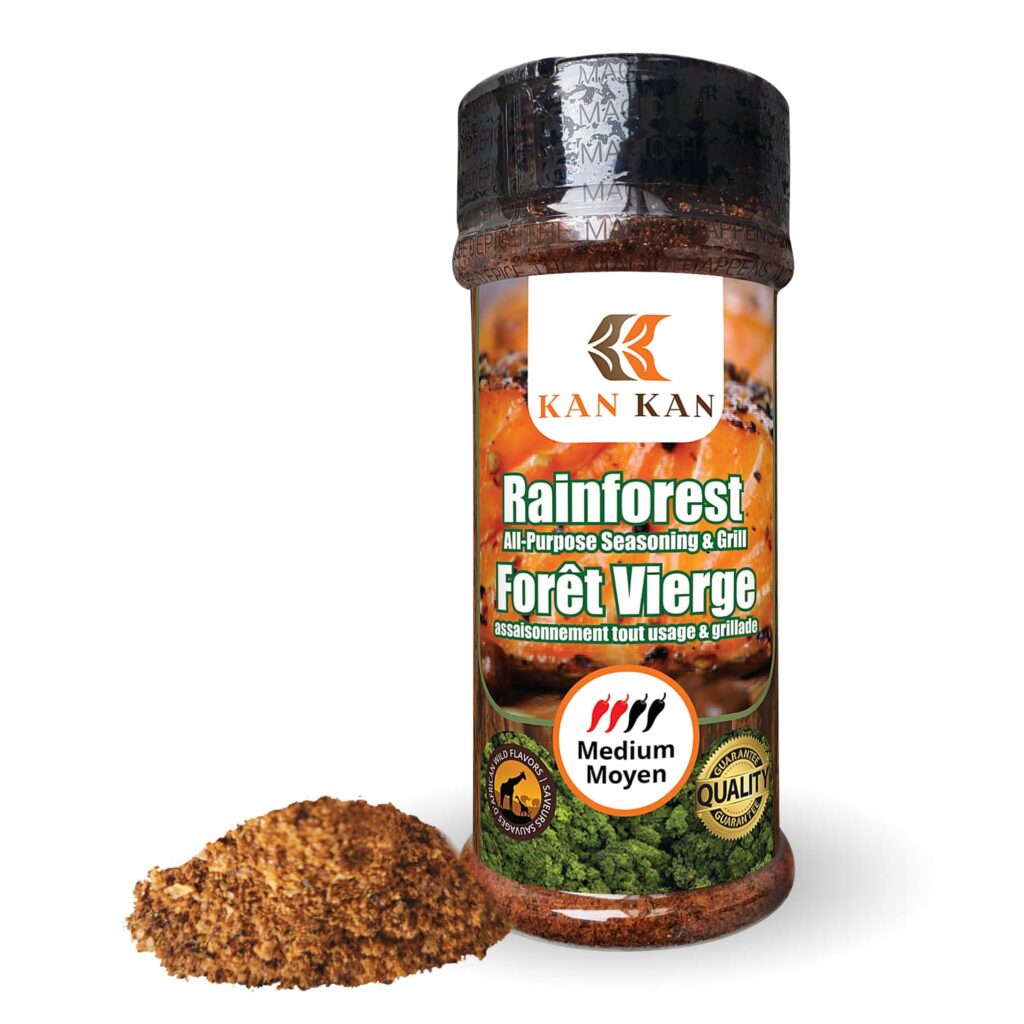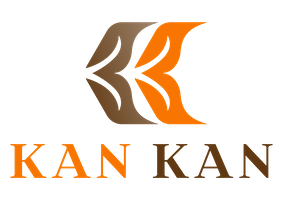Frequently Asked Question
In many African countries, charcoal-grilled meats, especially beef called suya, are served with chilli powder and a mixture of spices called KanKan in some countries and KanKanKan in others. I like to describe kankan as the dry ketchup of charcoal grills. Each region has its own kankan recipe. In the far north of Cameroon, it is a mixture of dehydrated peanut pulp with a few spices as found in Nigeria, in western Cameroon, it is a mixture of traditional spices to name but a few.
The company is named Kan Kan after this common name for a ready-to-use spice blend. Although our spice blends are not typical Kankans as they are 100 times more concentrated than conventional KanKan, they can also serve as Kankan well if added to grills in tiny amounts. Kankans are often super diluted products, not concentrated enough to marinate meats or to season dishes. It would therefore take a huge amount of kanKan to obtain the same result as with the Kan Kan spices Rainforest all-purpose seasoning and grilling.
Kan Kan is a spice blend from the Central African rainforest. This area of equatorial Africa which is the Amazon of Africa, the heart of the equatorial forest, “the lung of Africa”. These are wild spices, used in cooking and in traditional African medicine since our ancestors and still today to treat a wide variety of ailments. Research has shown that they are very rich in antioxidants and prebiotics essential for the good health of the intestinal flora. When we all know today that immunity depends on the health of the intestinal flora and that death begins in our intestines. In the kitchen, they are very important for spicing up different dishes and especially for naturally keeping dishes fresh when you don’t have a refrigerator, as is the case in rural areas. They are wild peppers, with a woody taste with various notes ranging from spicy, to sour, to sweet, to slightly bitter.
The raw material is imported from Africa and Cameroon in particular, from a recognized supplier in the field who buys them from the farmers directly after harvesting in the forests or fields. This company takes care of the drying and storage itself in order to guarantee the quality of the product and to respect our standards. The products are then received in Canada where the quality is again checked before production according to the standards of the Food Inspection Agency of Canada by Christiane, the owner herself with more than 20 years of experience ranging from quality assurance, laboratory work, research and development of new products. She has held positions with several companies as quality manager, coordinator of the implementation of the ISO 9001 standard in one of the Kraft Canada factories and others.
Penja pepper is protected by a PGI (Protected Geographical Indication); its production is therefore limited to a specific territory and its production must respect traditional cultivation methods and local agricultural practices. Known for its volcanic soil, the white pepper of Penja is long in the mouth and very slightly spicy. It is soft and refined. Penja pepper is recognized as one of the best white peppers in the world. Its fragrance, both frank and refined, is woody, with complex notes of fermentation. It also has fresh and herbaceous notes. The cultivation of pepper in the Penja Valley, Cameroon, began in the 1950s. The fertile region, where there is a rich and diversified agriculture, offers the pepper plant an ideal terroir thanks to its volcanic soil.

